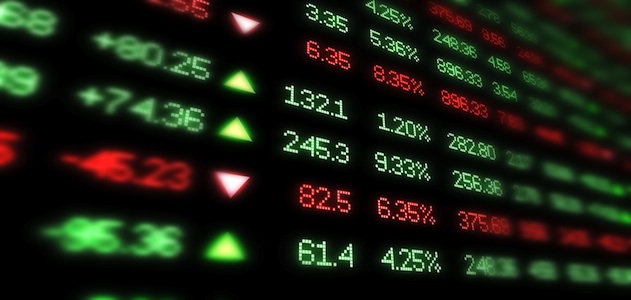Political gridlock over how to handle the impending debt ceiling crunch sent all three stock indices and the HW 30 into the red Tuesday, as traders reacted to the ongoing gridlock in Washington D.C.
Both President Obama and House Speaker John Boehner put forth their respective views during press conferences. Inevitably, both leaders left the markets with the impression that neither side has budged and reaching a compromise will be difficult, if not impossible.
Meanwhile, stocks took the fear bait, falling across the board.
The Dow Jones Industrial average plummeted, closing well under 15,000 after dropping 159.71 points, or 1.07%, by the end of trading.
The HW 30 – a composite list of mortgage finance and housing stocks – fared just as bad. All stocks listed on the HW 30 finished lower as political gridlock persisted, causing lenders to fear more loan processing delays with government offices likely to remain closed for the time being.
Despite all the grief on Wall Street, analysts with Capital Economics offered a balanced view of what lies ahead for the economy and the markets.
"The markets are right to be concerned about the wider implications if the U.S. Federal government is unable to service its debts,” Capital Economics analysts wrote. "This would be unchartered territory and no one can be sure exactly how events would pan out."
Still, the report doesn’t point to a doomsday-type of scenario right away. Instead, Capital Economics says a default viewed as technical or temporary – rather than one signifying an inability to pay – would be less severe than what followed after Lehman Brothers collapsed in 2008. The final deadline given for the debt ceiling is Oct. 17, but that’s not necessarily D-Day for the stock market.
"There would then be several possible crunch points. It should be possible to roll over the Treasury securities maturing on Oct. 24, as this would not represent a net addition to the stock of debt," Capital Economics said. "But there are also large social security payments due on the 1st, and an interest payment due on the15th. The Treasury could hold back social security payments in order to service the debt, but paying foreign creditors rather than needy U.S. citizens would of course be hugely controversial."
The president also could try to raise the debt ceiling on his own, setting himself up for a constitutional battle.
With big banks coming upon their third-quarter earnings, all of the market uncertainty pushed Bank of America (BAC), Wells Fargo (WFC) and JPMorgan Chase (JPM) down 0.87% , 0.94% and 1.85%, respectively, on Tuesday.
And Monday's standout stock, PHH Corp. (PHH), remains a mystery. It was one of a few HW stocks to rise Monday after rumors of a unit sale spread.
But by market close on Tuesday, PHH had fallen 4.05%. The reason? SmarTrend called it a "possible trend reversal," with the stock down "on heavy volume."
SmarTrend added, "About 1.9 million shares have been traded today, as compared to the 30-day average volume of 969,000 shares. Unusually high volume can signify a potential turning point or validate a breakout."
Overall, while Monday trading was bad, Tuesday was worse, with the HW 30 seeing no stocks on the upswing for the day.





